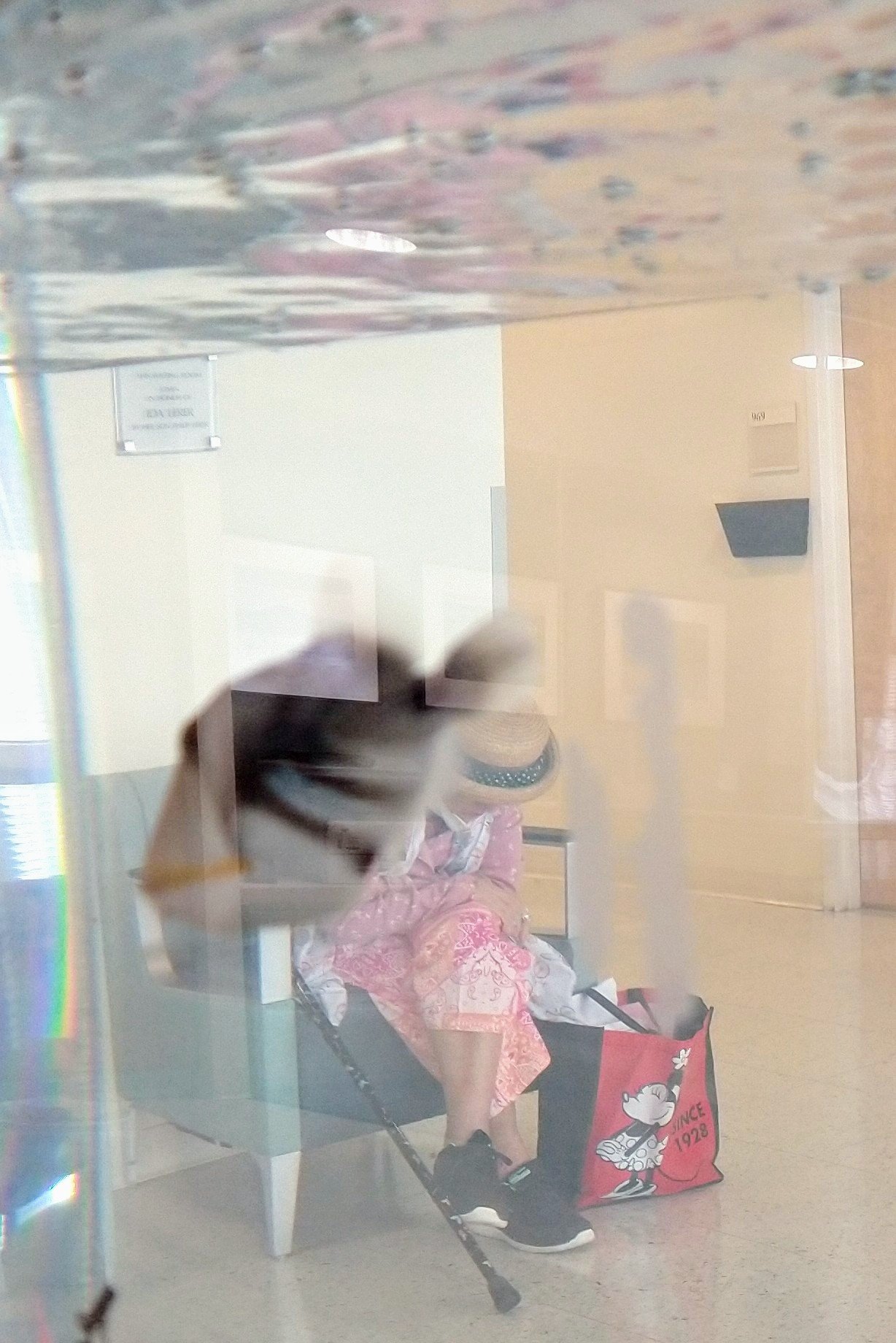The poem titled, “To the Woman at My Mother’s Funeral Who Thought It Was So Lovely that My Mother Died at Home” by Kathryn Paul (Spring 2022 Intima, Poetry), circles around my mind days after reading it. Paul’s poem eloquently speaks back to the assumption that it is always good to die at home, that home deaths are always peaceful. The literal hands-on work of caregiving—the cleaning of blood, mucus, urine and feces — is unspoken and generally done by women, whether paid or unpaid, and the writer, who in her bio calls herself “a survivor of many things” captures this in her poem.
Read moreA Sestina in Honor of Tia Forsman’s “Remnant” by Lynn Lawrence
“Radiographs serve as distilled moments of a human narrative,
An illness experience in greyscale” (From “Remnant” by Tia Forsman in the Spring 2022 Intima)
Sea glass/cutglass/eyeglass/stonefish/boomerang, Forsman’s remnants
Arrayed/x-rayed on the nightblack ocean floor of shapes and shadows.
From the French : to “rest”; to “remain”, “left over”; an underwater x-ray.
Overlapping, edges blurred, tenderly floating in an uncertain narrative.
This isn’t an x-ray. It just looks like one. Like medicine, a “grey area”
Forman is bilingual.. She paints in watercolor. She speaks in radiology.
Does one honor or diminish an elderly parent by insisting on the truth? A reflection by Davida Pines
Kristin Graziano’s “Contents Have Shifted” considers how best to respond to a parent’s dementia-inflected reality. “For years,” Graziano observes about her mother, “I felt compelled to refute her falsehoods. I felt that by correcting her, I could yank her back to The Truth, to the real world. When I did this, sharp words with resentful tones followed, leaving us both frustrated and silent.”
Read moreEndurance and Gratitude: A reflection on finding joy in difficult moments by Laura Carmen Arena
Both Karen George’s poem, and my “Triptych:Oncology Fish,” share an expression of admiration for the resplendent inner strength in our loved ones, emanating despite the foreboding shadows of illness, suffering and loss. The emotions floating around our lived spaces as our loved ones endure and battle disease in the face of difficult circumstances move in many directions including grieving, reflecting, hoping, enduring and celebrating, colors that shift and radiate with the heroically hopeful, illuminating presence of gratitude and love.
Read moreOn Work-Worn Hands and Gestures of Love, a short essay by poet and educator, Joan Baranow
A writer and poet honors the memory of her mother by finding the parallels between her own work and the story of another mother and daughter.
Read moreThe Third Ear: Listening for Intergenerational Trauma
A psychiatrist uses her skills of close listening within the clinical encounter to uncover the enduring effects of intergenerational trauma.
Read moreOn Sinatra, Bach, and Daughters: The Power of True Joy in the Face of Illness
A medical student reflects on the loss of their father to a devastating neurodegenerative disease as well as the power that music can hold during the illness experience.
Read moreThe Importance of Providing Compassionate Palliative and End-of-Life Care
A writer reflects on her own mother’s experience with death and dying and argues for the greater recognition of palliative care in the clinical encounter.
Read moreAfter Testimony, Tribute
A testimony and tribute to one writer’s mother who passed away from COVID-19.
Read more

